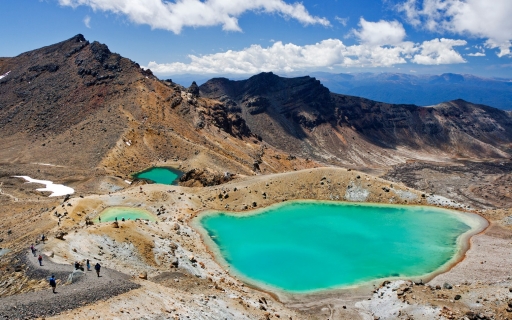Dunedin Weather and Climate: A Comprehensive Guide
Dunedin has a temperate maritime climate, influenced by a persistent cold front that brings changeable and cloudy weather year-round. Summers are mild, with January being the warmest month, averaging 19°C. Winters are also mild but often overcast.
January sees the highest rainfall, averaging 80 mm, while September is the driest month. Despite its beautiful beaches, sunshine is not always guaranteed.
Average maximum day and minimum night temperature
In Dunedin, seasonal changes bring about a moderate variation in temperatures. Typically, average maximum daytime temperatures range from a pleasant 19°C in January to a chilly 10°C in the coolest month, July.
Nights are cooler, with lows often dropping to around 1°C during the colder months.Check out our detailed temperature page for more information.
Temperature ranges by month
Precipitation and rainy days
Generally, Dunedin receives mid-range precipitation levels, with 973 mm annually. The climate in Dunedin shows significant variation throughout the year. Expect high rainfall in December, with an average of 118 mm of precipitation over 15 rainy days.
In contrast, July offers drier and sunnier days, with around 52 mm of rainfall over 15 rainy days. For more details, please visit our Dunedin Precipitation page.The mean monthly precipitation over the year, including rain, hail and snow
Sunshine over the year
For those who appreciate different seasons, Dunedin serves as an ideal destination. Expect longer, more sun-filled days in December with an average of 6.1 hours of sunshine daily, and embrace the darker days in June, offering only 3.3 hours of daily sunlight.
Visit our detailed sunshine hours page for more information.
Monthly hours of sunshine
Daily hours of sunshine
Average water temperature
The mean water temperature over the year ranges from 9°C in August to 13°C in January.
Water temperature over the year
Average humidity
The relative humidity is high throughout the year in Dunedin.
The city experiences its highest humidity in May, reaching 80%. In November, the humidity drops to its lowest level at 71%. What does this mean? Read our detailed page on humidity levels for further details.
Relative humidity over the year
Average wind speed
The average wind speed over the year ranges from 3 m/s to 4 m/s. It is lower in January, February, March, April, May, June, July, August, September and December and higher in October and November.
The mean monthly wind speed over the year (meters per second)
Forecast for Dunedin



Select a Month of Interest
Check the conditions for any month of the year.
The best time of year to visit Dunedin in New Zealand
Other facts from our historical weather data:January has an average maximum temperature of 19°C and is the warmest month of the year.
The coldest month is July with an average maximum temperature of 10°C.
December tops the wettest month list with 118 mm of rainfall.
July is the driest month with 52 mm of precipitation.
December is the sunniest month with an average of 182 hours of sunshine.
No idea where to travel to this year? We have a tool that recommends destinations based on your ideal conditions. Find out where to go with our weather planner.



